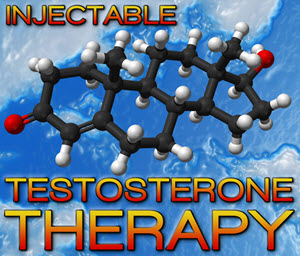Introduction
Kyzatrex, a novel oral testosterone replacement therapy, has been introduced to the market as a convenient alternative to traditional injectable forms. Given testosterone's well-documented role in erythropoiesis, the process by which red blood cells are produced, it is crucial to understand how Kyzatrex influences hematological parameters in American men. This article delves into a recent study examining the effects of Kyzatrex oral capsules on red blood cell production, offering insights into its safety and efficacy from a hematological perspective.
Study Design and Methodology
The study involved a cohort of 200 American men aged between 30 and 65 years, all diagnosed with hypogonadism. Participants were randomly assigned to receive either Kyzatrex oral capsules or a placebo over a 12-month period. Hematological assessments, including hemoglobin levels, hematocrit, and red blood cell count, were conducted at baseline, 6 months, and 12 months. The primary objective was to evaluate changes in these parameters and assess the potential for polycythemia, a condition characterized by an elevated red blood cell mass.
Results on Hemoglobin Levels
Hemoglobin levels, a critical indicator of red blood cell function, showed a significant increase in the Kyzatrex group compared to the placebo group. At the 6-month mark, the Kyzatrex group exhibited an average increase of 1.2 g/dL in hemoglobin levels, which further rose to 1.5 g/dL by the end of the study. In contrast, the placebo group experienced no significant changes. These findings underscore Kyzatrex's potent effect on erythropoiesis, warranting close monitoring to prevent potential complications such as polycythemia.
Changes in Hematocrit and Red Blood Cell Count
Hematocrit, the volume percentage of red blood cells in blood, also increased significantly in the Kyzatrex group. By the 12-month endpoint, the average hematocrit in the Kyzatrex group had risen by 4%, compared to a negligible change in the placebo group. Similarly, the red blood cell count in the Kyzatrex group increased by approximately 0.5 million cells per microliter, while the placebo group remained stable. These results highlight the need for regular hematological monitoring in patients using Kyzatrex.
Incidence of Polycythemia
Polycythemia, defined as a hematocrit level above 54%, was observed in 8% of the Kyzatrex group, compared to none in the placebo group. While this incidence is relatively low, it emphasizes the importance of vigilant monitoring and potential dose adjustments to mitigate the risk of this condition. Clinicians should be prepared to intervene if hematocrit levels approach or exceed the threshold for polycythemia.
Clinical Implications and Safety Considerations
The study's findings suggest that Kyzatrex can effectively enhance red blood cell production, which is beneficial for patients with hypogonadism who may also suffer from anemia. However, the increased risk of polycythemia necessitates careful patient selection and regular monitoring. Clinicians should consider baseline hematocrit levels and the patient's overall health status when prescribing Kyzatrex, and be ready to adjust treatment plans as needed.
Conclusion
Kyzatrex oral capsules have demonstrated a significant impact on erythropoiesis in American men with hypogonadism, leading to increased hemoglobin levels, hematocrit, and red blood cell counts. While these effects can be advantageous, the potential for polycythemia requires diligent monitoring and management. As Kyzatrex becomes more widely used, ongoing research and clinical vigilance will be essential to ensure its safe and effective application in testosterone replacement therapy.
Contact Us Today For A Free Consultation

- Kyzatrex Efficacy in American Males: Impact of Diet and Lifestyle Choices [Last Updated On: March 17th, 2025] [Originally Added On: March 17th, 2025]
- Kyzatrex: Oral Testosterone Therapy and Prostate Health in American Men [Last Updated On: March 17th, 2025] [Originally Added On: March 17th, 2025]
- Kyzatrex: Economic Impact and Accessibility in Hypogonadism Treatment [Last Updated On: March 17th, 2025] [Originally Added On: March 17th, 2025]
- Kyzatrex: Enhancing Athletic Performance and Recovery in American Male Athletes [Last Updated On: March 18th, 2025] [Originally Added On: March 18th, 2025]
- Kyzatrex: Enhancing Life Quality for Older Men with Low Testosterone [Last Updated On: March 18th, 2025] [Originally Added On: March 18th, 2025]
- Kyzatrex: Revolutionizing Male Fertility with Oral Testosterone Therapy [Last Updated On: March 18th, 2025] [Originally Added On: March 18th, 2025]
- Kyzatrex: Oral Testosterone Therapy for American Men - Benefits, Safety, and Usage [Last Updated On: March 19th, 2025] [Originally Added On: March 19th, 2025]
- Kyzatrex Side Effects: Management Strategies for American Men [Last Updated On: March 19th, 2025] [Originally Added On: March 19th, 2025]
- Kyzatrex Oral Capsules: A Convenient Advance in Testosterone Replacement Therapy [Last Updated On: March 20th, 2025] [Originally Added On: March 20th, 2025]
- Kyzatrex: Enhancing Men's Health and Sleep Quality Through Testosterone Therapy [Last Updated On: March 21st, 2025] [Originally Added On: March 21st, 2025]
- Kyzatrex: Tailored Oral Testosterone Therapy for American Men's Health [Last Updated On: March 22nd, 2025] [Originally Added On: March 22nd, 2025]
- Kyzatrex: Oral Testosterone Therapy's Efficacy and Safety in American Men [Last Updated On: March 22nd, 2025] [Originally Added On: March 22nd, 2025]
- Kyzatrex Oral Capsules: Managing Testosterone Deficiency in American Men [Last Updated On: March 22nd, 2025] [Originally Added On: March 22nd, 2025]
- Kyzatrex: Cost-Benefit Analysis for American Men's Oral Testosterone Therapy [Last Updated On: March 22nd, 2025] [Originally Added On: March 22nd, 2025]
- Kyzatrex: Oral Testosterone Therapy Advances Hypogonadism Treatment in American Males [Last Updated On: March 22nd, 2025] [Originally Added On: March 22nd, 2025]
- Kyzatrex: Enhancing Muscle Mass and Reducing Body Fat in American Males [Last Updated On: March 23rd, 2025] [Originally Added On: March 23rd, 2025]
- Kyzatrex: Oral Testosterone Therapy Guide for American Males [Last Updated On: March 23rd, 2025] [Originally Added On: March 23rd, 2025]
- Minimizing Kyzatrex Side Effects: Strategies for American Men with Hypogonadism [Last Updated On: March 23rd, 2025] [Originally Added On: March 23rd, 2025]
- Kyzatrex: Enhancing Emotional Health in American Males Through Testosterone Therapy [Last Updated On: March 24th, 2025] [Originally Added On: March 24th, 2025]
- Kyzatrex: Revolutionizing Oral Testosterone Therapy for American Males [Last Updated On: March 25th, 2025] [Originally Added On: March 25th, 2025]
- Kyzatrex Oral Capsules: A New Hope for Managing Hypogonadism in Men [Last Updated On: March 25th, 2025] [Originally Added On: March 25th, 2025]
- Kyzatrex: Oral Testosterone Therapy's Impact on Cardiovascular Health in American Men [Last Updated On: March 25th, 2025] [Originally Added On: March 25th, 2025]
- Kyzatrex: Oral Testosterone Therapy's Impact on Diabetes in American Males [Last Updated On: March 25th, 2025] [Originally Added On: March 25th, 2025]
- Kyzatrex: Enhancing Recovery in American Men with Oral Testosterone Capsules [Last Updated On: March 25th, 2025] [Originally Added On: March 25th, 2025]
- Kyzatrex: Enhancing Weight Management in American Men through Testosterone Therapy [Last Updated On: March 25th, 2025] [Originally Added On: March 25th, 2025]
- Kyzatrex: Enhancing Cognitive Function in American Men with Oral Testosterone and Nootropics [Last Updated On: March 25th, 2025] [Originally Added On: March 25th, 2025]
- Kyzatrex: Oral Testosterone Therapy Boosts Energy, Performance, and Mood in Men [Last Updated On: March 25th, 2025] [Originally Added On: March 25th, 2025]
- Kyzatrex: Oral Testosterone Therapy Revolution for American Men's Health [Last Updated On: March 25th, 2025] [Originally Added On: March 25th, 2025]
- Kyzatrex: Revolutionizing Testosterone Therapy for American Men with Oral Capsules [Last Updated On: March 25th, 2025] [Originally Added On: March 25th, 2025]
- Kyzatrex: Oral Solution for Low Testosterone's Psychological and Physical Effects [Last Updated On: March 25th, 2025] [Originally Added On: March 25th, 2025]
- Kyzatrex: Enhancing Endurance and Strength in American Males with Testosterone Undecanoate [Last Updated On: March 26th, 2025] [Originally Added On: March 26th, 2025]
- Genetic Factors Influencing Kyzatrex Response in American Men with Hypogonadism [Last Updated On: March 26th, 2025] [Originally Added On: March 26th, 2025]
- Kyzatrex: Enhancing Skin Health and Vitality in American Males [Last Updated On: March 26th, 2025] [Originally Added On: March 26th, 2025]
- Kyzatrex: Oral Solution for Testosterone Deficiency in American Men [Last Updated On: March 27th, 2025] [Originally Added On: March 27th, 2025]
- Kyzatrex: Oral Testosterone Therapy Advances Men's Preventive Health Care [Last Updated On: March 27th, 2025] [Originally Added On: March 27th, 2025]
- Kyzatrex: Managing Blood Pressure in Testosterone Therapy for American Males [Last Updated On: March 27th, 2025] [Originally Added On: March 27th, 2025]
- Kyzatrex: Testosterone Treatment's Impact on Eye Health in American Men [Last Updated On: March 27th, 2025] [Originally Added On: March 27th, 2025]
- Kyzatrex: Enhancing Immune Function in American Males Through Oral Testosterone Therapy [Last Updated On: March 28th, 2025] [Originally Added On: March 28th, 2025]
- Kyzatrex: Enhancing American Men's Health with Testosterone Therapy and Lifestyle Adjustments [Last Updated On: March 28th, 2025] [Originally Added On: March 28th, 2025]
- Kyzatrex: Revolutionizing Oral Testosterone Therapy for American Males [Last Updated On: March 28th, 2025] [Originally Added On: March 28th, 2025]
- Kyzatrex Capsules: Enhancing Joint Health and Mobility in American Men [Last Updated On: March 28th, 2025] [Originally Added On: March 28th, 2025]
- Kyzatrex: Oral Testosterone Therapy and the Importance of Patient-Doctor Communication [Last Updated On: March 28th, 2025] [Originally Added On: March 28th, 2025]
- Kyzatrex: Revolutionizing Oral Testosterone Therapy for American Men's Health [Last Updated On: March 28th, 2025] [Originally Added On: March 28th, 2025]
- Kyzatrex: Oral Testosterone Therapy's Impact on Men's Mental Health in the U.S. [Last Updated On: March 28th, 2025] [Originally Added On: March 28th, 2025]
- Kyzatrex: Impacts on Hair Growth and Loss in American Men [Last Updated On: March 28th, 2025] [Originally Added On: March 28th, 2025]
- Kyzatrex: Oral Testosterone Therapy and the Critical Role of Regular Blood Monitoring [Last Updated On: March 29th, 2025] [Originally Added On: March 29th, 2025]
- Kyzatrex: Oral Testosterone Therapy and Its Effects on Kidney Function in American Males [Last Updated On: March 29th, 2025] [Originally Added On: March 29th, 2025]
- Kyzatrex: A Holistic Oral TRT Solution for Hypogonadism in American Men [Last Updated On: March 30th, 2025] [Originally Added On: March 30th, 2025]
- Kyzatrex: Optimizing Outcomes for American Men with Hypogonadism [Last Updated On: March 30th, 2025] [Originally Added On: March 30th, 2025]
- Kyzatrex: Oral Testosterone Therapy and Liver Health Considerations for American Men [Last Updated On: March 31st, 2025] [Originally Added On: March 31st, 2025]
- Kyzatrex: Advancing Men's Health with Gut-Friendly Testosterone Therapy [Last Updated On: March 31st, 2025] [Originally Added On: March 31st, 2025]
- Kyzatrex Therapy: Enhancing Efficacy with Optimal Hydration for American Men [Last Updated On: April 1st, 2025] [Originally Added On: April 1st, 2025]
- Kyzatrex: Enhancing Post-Surgical Recovery in American Males with Oral Testosterone Therapy [Last Updated On: April 1st, 2025] [Originally Added On: April 1st, 2025]
- Kyzatrex: Oral Testosterone Therapy's Impact on American Males' Respiratory Health [Last Updated On: April 4th, 2025] [Originally Added On: April 4th, 2025]
- Kyzatrex: Oral Testosterone Therapy and Its Impact on Hearing Health in American Males [Last Updated On: April 7th, 2025] [Originally Added On: April 7th, 2025]
- Kyzatrex: A New Oral Solution for Allergy Relief in American Men [Last Updated On: April 7th, 2025] [Originally Added On: April 7th, 2025]
- Kyzatrex: Enhancing Immune Function in American Men Through Testosterone Therapy [Last Updated On: April 7th, 2025] [Originally Added On: April 7th, 2025]
- Kyzatrex: Impacts on Dental Health in American Males Using Testosterone Therapy [Last Updated On: April 7th, 2025] [Originally Added On: April 7th, 2025]
- Kyzatrex: Enhancing Mental Health in American Men with Low Testosterone [Last Updated On: April 8th, 2025] [Originally Added On: April 8th, 2025]
- Kyzatrex: A New Hope for Managing Autoimmune Conditions in American Men [Last Updated On: April 9th, 2025] [Originally Added On: April 9th, 2025]
- Kyzatrex and Vision Health: Monitoring and Care for American Males [Last Updated On: April 9th, 2025] [Originally Added On: April 9th, 2025]
- Kyzatrex: Enhancing Metabolic Health in American Males with Oral Testosterone Therapy [Last Updated On: April 9th, 2025] [Originally Added On: April 9th, 2025]
- Kyzatrex: A Novel Oral Therapy for Sleep Disorders in Men with Low Testosterone [Last Updated On: April 9th, 2025] [Originally Added On: April 9th, 2025]
- Kyzatrex Therapy: Stress Management Strategies for American Males with Hypogonadism [Last Updated On: April 10th, 2025] [Originally Added On: April 10th, 2025]
- Kyzatrex Capsules: Enhancing Exercise Recovery for American Men [Last Updated On: April 10th, 2025] [Originally Added On: April 10th, 2025]
- Kyzatrex: Managing Skin Sensitivity in Testosterone Replacement Therapy for American Males [Last Updated On: April 11th, 2025] [Originally Added On: April 11th, 2025]
- Kyzatrex: Enhancing Neurological Health in Men with Hypogonadism [Last Updated On: April 15th, 2025] [Originally Added On: April 15th, 2025]
- Kyzatrex Capsules: Enhancing Wellbeing in American Men Through Hormonal Balance [Last Updated On: April 15th, 2025] [Originally Added On: April 15th, 2025]
- Kyzatrex: Oral Testosterone Therapy's Impact on Endocrine System and Health [Last Updated On: April 16th, 2025] [Originally Added On: April 16th, 2025]
- Kyzatrex: Oral Testosterone Therapy for Hypogonadism in American Males [Last Updated On: April 16th, 2025] [Originally Added On: April 16th, 2025]
- Kyzatrex: A Novel Oral Capsule for Managing Chronic Pain in American Males [Last Updated On: April 16th, 2025] [Originally Added On: April 16th, 2025]
- Kyzatrex: Oral TRT for Hypogonadism Requires Diligent Monitoring for Optimal Health [Last Updated On: April 16th, 2025] [Originally Added On: April 16th, 2025]
- Kyzatrex: Impact on Urinary Health in American Males with Hypogonadism [Last Updated On: April 18th, 2025] [Originally Added On: April 18th, 2025]
- Kyzatrex: A New Oral Solution for Managing Inflammation in American Men [Last Updated On: April 18th, 2025] [Originally Added On: April 18th, 2025]
- Kyzatrex: Oral Testosterone Therapy and Gastrointestinal Health in American Men [Last Updated On: April 18th, 2025] [Originally Added On: April 18th, 2025]
- Kyzatrex Therapy: Enhancing Benefits with Balanced Diet for American Men [Last Updated On: April 19th, 2025] [Originally Added On: April 19th, 2025]
- Kyzatrex: Managing Side Effects for Optimal Testosterone Therapy in American Men [Last Updated On: April 21st, 2025] [Originally Added On: April 21st, 2025]
- Kyzatrex Oral Capsules: A Convenient Solution for Low Testosterone in American Men [Last Updated On: April 21st, 2025] [Originally Added On: April 21st, 2025]
- Kyzatrex: Revolutionizing Testosterone Therapy for American Men's Health and Vitality [Last Updated On: April 22nd, 2025] [Originally Added On: April 22nd, 2025]
- Kyzatrex Oral Capsules: A New Standard in TRT for American Males [Last Updated On: April 22nd, 2025] [Originally Added On: April 22nd, 2025]
Word Count: 527




















